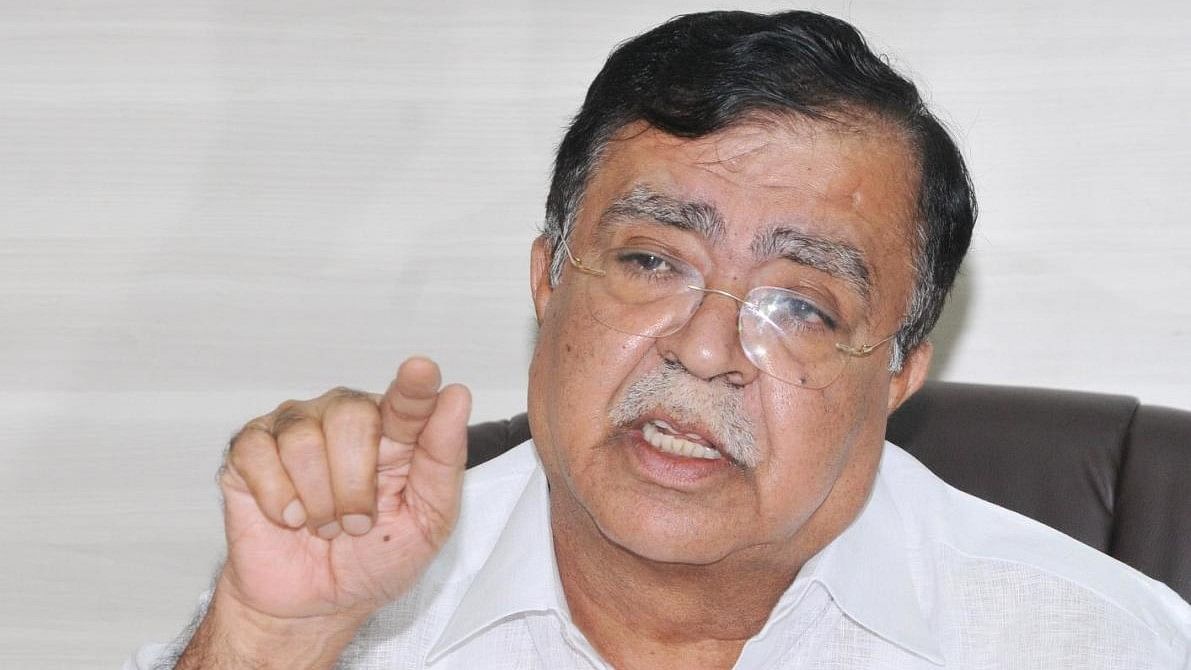
K N Rajanna.
Credit: DH Photo
Mangaluru: Karnataka Cooperation Minister K N Rajanna said that there is no proposal before the state government at present to hike the price of milk.
The Karnataka government had increased milk prices by Rs 3 per litre in the state from August following demands from milk producers’ unions.
“Consumers will have to bear the brunt of the repeated hike in the price of milk. Instead of hiking the milk price, the government is mulling over providing subsidies for dairy farmers to increase milk production including for the purchase of feed,” he told mediapersons in Mangaluru.
On the Yashaswini health scheme, the minister said that the government will revise the treatment costs at private hospitals.
He said that considering not many private hospitals are coming forward to treat patients under Yashaswini scheme, “we have realised that the old rate was fixed for the treatment. With the rise in price, the treatment cost too has increased. Hence, I have already held a meeting with the doctors on revision of treatment costs. More hospitals have agreed to come forward to treat the patients under Yashaswini scheme with the revision of the treatment cost. The revised treatment cost will be ready by next enrollment for the Yashaswini scheme,” he said.
Rules being framed
The Cooperation Minister said that rules for the Karnataka Co-operative Societies (Amendment) Act, 2023 are being framed and are in the final stage.
“Law Minister will finalise it shortly and will be implemented at the earliest. The amendment was passed to ensure service security for the employees of cooperative societies and milk producers society. The CEO, managers, secretary of rural cooperative societies, milk producers society did not have service security. The society management board had a final say in removing them from service following any allegations or political pressure. To ensure service security, Section 128 (a) of the act was amended, which received assent from the Governor as well,” he said.
The amendment to the act also decided to constitute a common cadre authority with the DCC Bank president as its President, DCC Bank CEO as its member secretary and the Deputy Registrar of Cooperative Societies as a member.
Any decision on the employees of cooperative societies will be taken by the cadre authority. In fact, such a system was in practice in the past. However, to implement the Vaidyanathan Committee report, which had laid conditions on the decentralisation of power and entrusting power to the management board of the society, it was done away with.
To avail funds under the Vaidyanathan Committee report, the state government had also decided to remove the common cadre authority. Further, the government had also decided to reintroduce the old system of a representative of DCC Bank in the management board of the cooperative societies. “I have asked the officials to bring in amendment to the bye -law of the society by the end of next month to ensure that DCC Bank or financing agency representative as director of cooperative societies,” the minister said.